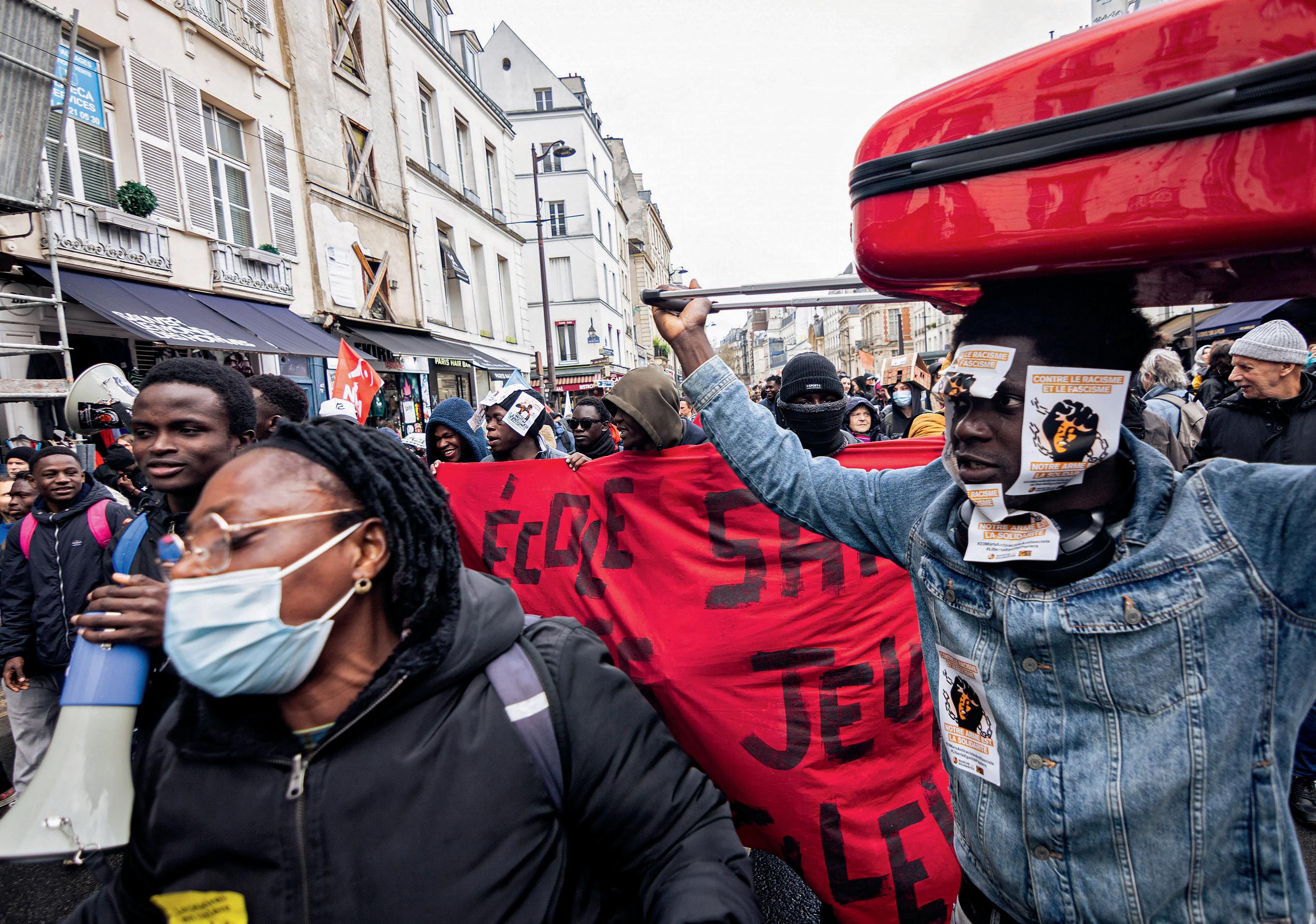Prøve GULL - Gratis
'Suffering double punishment' Racial prejudice pervades the rental market
The Guardian Weekly
|May 10, 2024
The 40 sq metre apartment had everything Hamado Dipama was looking for: one bedroom, a bath and a good location in the southern German city of Augsburg.

When he called to set up a viewing, however, the landlord kept asking him where he was from.
"It was bizarre," said Dipama. "I told him that I didn't know what that had to do with his rental. And he hung up on me." Dipama, originally from Burkina Faso, swiftly realised he had overlooked a stipulation listed plainly in the 2019 newspaper advert: "Germans Only."
It was a window - albeit far more overt than usual - into the kind of discrimination that racialised minorities across Europe have long faced in the housing market. In recent years, as cities across the European Union grapple with a shortage of decent, affordable housing, campaigners warn that the housing crisis is having a disproportionate effect on people of colour and other minorities.
For these communities, "it's a dual crisis", said Magda Boulabiza, of the European Network Against Racism. "Discrimination means racialised minorities are less able to access housing. And then this intersects with income inequalities."
A 2017 EU-wide survey of 25,500 people with an immigrant or ethnic minority background found nearly a quarter of respondents said that, in the previous five years, they had faced discrimination when it came to accessing housing - from being denied the chance to view flats to rejections that came after revealing their background.
This discrimination came as minorities were already struggling with a greater risk of poverty, said Boulabiza, describing racism as a "tentacular octopus" that also left them more likely to have precarious or underpaid employment and face segregation when it came to educational opportunities.
"In a neoliberal market where housing has been made into this commodity that we can put at any price we want, this results in them not being able to match the prices that are asked for," she said. "And when they can, to be racially discriminated against."
Denne historien er fra May 10, 2024-utgaven av The Guardian Weekly.
Abonner på Magzter GOLD for å få tilgang til tusenvis av kuraterte premiumhistorier og over 9000 magasiner og aviser.
Allerede abonnent? Logg på
FLERE HISTORIER FRA The Guardian Weekly
The Guardian Weekly
My boyfriend's use of AI stops him thinking for himself
My boyfriend of eight years, who is 44, has ADHD and runs his own business.
2 mins
February 27, 2026

The Guardian Weekly
'Our land lets us all breathe clean oxygen'
The Congo River basin is home to a biodiverse ecosystem-and a relentless trade in timber and charcoal
3 mins
February 27, 2026

The Guardian Weekly
Nations apart: Andrew's UK arrest highlights US passivity on Epstein files
It is a tale of two nations.
2 mins
February 27, 2026

The Guardian Weekly
Under water: Engulfed by storms, but climate denial grows
In the week between Christmas and the New Year, two Spanish men in their early 50s - friends since childhood - went to a restaurant and did not come home.
3 mins
February 27, 2026

The Guardian Weekly
The crown in court
A brief history of royal run-ins with the law
3 mins
February 27, 2026

The Guardian Weekly
Big in Beijing
James Balmont's band, Swim Deep, plays to crowds of hundreds across the UK - but in China, they play to tens of thousands. And they're not the only ones
3 mins
February 27, 2026
The Guardian Weekly
Trump's Board of Peace is serving private interests more than public good
In Gaza, aid still trickles in at levels relief agencies say are far below what is required.
2 mins
February 27, 2026

The Guardian Weekly
Needle drops Weight-loss pills are here - and big pharma stands to gain
Oral tablets could bring obesity treatment into the mainstream, with the sector predicted to be worth $200bn by the end of the decade
6 mins
February 27, 2026

The Guardian Weekly
How Italians gradually warmed to their Winter Olympics
With the atmosphere in Rome subdued as the Winter Olympics unfolded across northern Italy, travelling to the Games was not on Amity Neumeister's radar.
3 mins
February 27, 2026

The Guardian Weekly
Fire and fury
Violence erupts as security forces kill feared cartel boss.
1 min
February 27, 2026
Listen
Translate
Change font size

